“Punjab Literary and Useful Information Society: January 1865, Lahore.”
The Punjab Association was established in January 1865 in Lahore with the full name “Punjab Literary and Useful Information Society.” It owes its inception to the efforts of Maulana Muhammad Hussain Azad and Dr. Leitner.
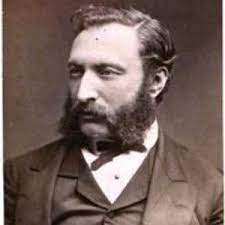
Muhammad Hussain Azad was pivotal in promoting and practically implementing his innovative theories through this association, fostering an active literary movement among the people.
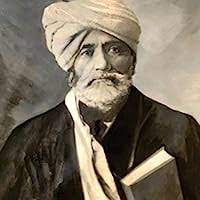
The objectives of the Punjab Association were multi-faceted:
- Revival of ancient Eastern sciences.
- Promotion of industry and commerce.
- Dissemination of useful sciences through the vernacular language among the people.
- Deliberation on scientific, literary, societal, and political issues.
- Facilitating connections between the province’s learned, classes, officials, and the government.
- Strengthening relationships with other factions in Punjab and India.
Literary contributions flourished through the Punjab Association. Muhammad Hussain Azad was its driving force, introducing a new trend in poetic gatherings. Rather than traditional ghazals, these gatherings delved into diverse topics, with each session focusing on a specific theme, inviting various poets to contribute compositions.
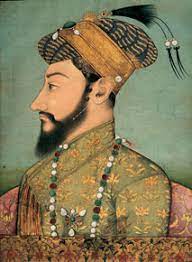
The inclination toward thematic poetry wasn’t initiated by Azad but had roots in ancient times. Examples can be found in the works of Sultan Muhammad Quli Qutb Shah, who had composed verses.
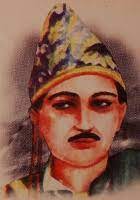
Additionally, the Deccan era witnessed the creation of “masnavis,” a form of poetic expression, exemplified by Nazeer Akbarabadi‘s copious poetic works. Abu Al-Lais Siddiqi recognized Nazeer Akbarabadi as the greatest thematic poet of ancient times.
A distinctive feature of the Punjab Association was its unique promotion of Urdu poetry, inspiring many poets to compose thematic verses simultaneously with ghazals. Azad furthered the evolution of Urdu poetry, taking it beyond Nazeer Akbarabadi’s framework, and expanding its horizons.
The Punjab Association marked a significant chapter in literary history, paving the way for thematic poetry and contributing substantially to the evolution of Urdu literature.
Muhammad Husain Azad initiated a sentimental movement in poetry and trained poets inclined toward this form of expression. His education at the Old Delhi College and association with English Orientalists in Punjab led to an intellectual clash, a catalyst for a significant movement.
Azad’s persona represents a blend of traditional and modern customs. On August 15, 1867, he delivered a lecture titled “Perspectives on Poetry and Prose” concerning the reform of Urdu poetry. He was inspired by English poetry but aimed to illuminate Urdu poetry through contemporary avenues. He emphasized the need to harness English poetry’s vitality and ornaments, advocating for a move towards nature-centric poetry, aligning with the objectives of the Punjab Association.
Azad, inherently rooted in tradition yet embracing novelty, visibly impacted the literary landscape. This movement fostered simplicity, purposefulness, and a neutral style in literature. He incorporated romantic themes and nature’s landscapes into his poetry. His verses on nature impressed Colonel Halyard, the Director of Education, who lauded Azad’s work during a gathering.

Colonel Halyard suggested organizing monthly gatherings featuring recitations of verses on various topics such as patriotism, justice, love, determination, and more. Azad’s compositions aimed to infuse his thoughts with facts and events, hence, being recognized for their emotional quality. His verses exemplify the best of sentimental poetry.
| چلنا وہ بادلوں کا زمیں چوم چوم کر |
| اور اٹھنا آسماں کی طرف جھوم جھوم کر |
| بجلی کو دیکھو آئی ہے کو ندتی ہوئی |
| سبزے کو ٹھنڈی ٹھنڈی ہوا روندتی ہوئی |
ڈاکٹر انور سدید کہتے ہیں:
| آزاد کی تحریک نے انسان کو لازوال فطرت کی آواز پر کان دھرنے،خیر کی قدر کو داخل سے اور حسن کی قدر کو خارج سے اجاگر کرنے کی طرف مائل کیا اور یوں آزاد نے اس صداقت وقت کو ابھارا جوجمال فطرت بن کر انسان کے چاروں طرف بکھری ہوئی تھی”۔ |
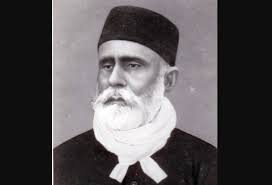
Maulana Altaf Hussain Hali stands as an important figure among the poets associated with the Punjab Association. His significant background in modern ideas had its origins in Lahore, aligning well with the goals of the Punjab Association when they initiated poetic gatherings. Hali not only participated but also composed four “masnavis” (narrative poems) for these gatherings, encompassing themes like patriotism, hope, the changing seasons, compassion, and poetic justice.
Characteristics of Hali’s poetry are akin to those of other poets in the association, but his poetic craftsmanship is notably superior. Dr. Anwar Sadeed commented, “Hali didn’t just skillfully blend old and modern tones in his poetry; he brought freshness to Urdu poetry by introducing new thoughts and thematic variations.”
Hali’s poetic prowess lies in his ability to seamlessly blend emotions, vividly illustrated landscapes and picturesque imagery. His poems “Barq-e-Raft” and “Mahbe-Watan” stand out for this reason.
The influence of Lahore’s poets transformed Hali’s temperament to such an extent that he penned a poem like “Musaddas-e-Mad’o-Jazar-e-Islam.” After Azad, Hali emerged as one of the eminent poets within the association.
Assessments of the poetry presented by the association’s poets showcased both positive and negative critiques.
Overall, the Punjab Association emphasized simplicity and realism in its poets’ work. Although the poetic gatherings concluded within a year, it sparked a resurgence in poetry, particularly in the realm of prose. The poetry produced under the association reflected a departure from the love-centered, problematic verses of the era’s ghazal poets like Amir Meenai and Daagh Dehlvi.


These new compositions focused on societal issues and embraced realism while expressing patriotism and portraying natural vistas.
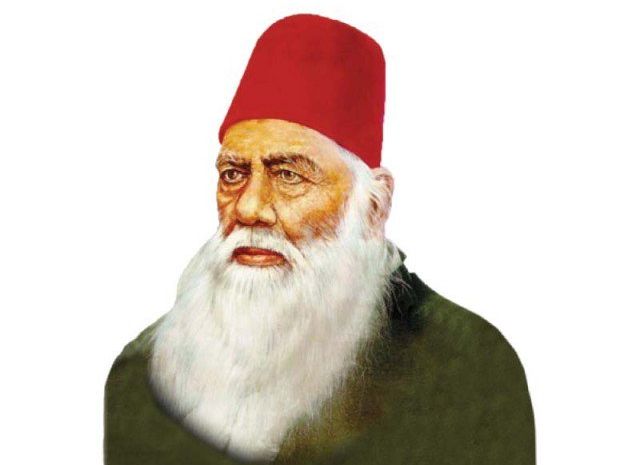
Sir Syed, an emblem of modern sentiments during that era, also lauded these poets for their positive attributes. Notably, his essay “Ilm-e-Insha aur Urdu Nazm” in 1875, featured in “Tehzeeb al-Akhlaq,” acknowledges their noteworthy qualities.
The discussion revolves around
The influential figures associated with the Punjab Association, highlight the contributions of Muhammad Hussain Azad and Maulana Altaf Hussain Hali in reshaping Urdu poetry. Azad’s innovative theories and practical implementation through the association fostered an active literary movement, departing from traditional ghazals to thematic verses on various subjects. He advocated for blending English poetry’s vitality into Urdu literature, urging a shift towards nature-centric themes.
Altaf Hussain Hali, another significant figure, participated actively in the Punjab Association’s poetic gatherings. His compositions, including narrative poems touching upon patriotism, changing seasons, hope, and justice, showcased superior poetic craftsmanship. Hali’s ability to infuse new thoughts and thematic variations in Urdu poetry earned praise for bringing freshness to the genre.
Overall, the Punjab Association’s poets emphasized simplicity, realism, and societal issues, departing from the era’s prevalent love-centered verses. Despite varying critical opinions, the association’s impact on Urdu literature remained substantial, ushering in a resurgence in prose-infused poetry and emphasizing societal concerns and patriotic sentiments.
Post Comment